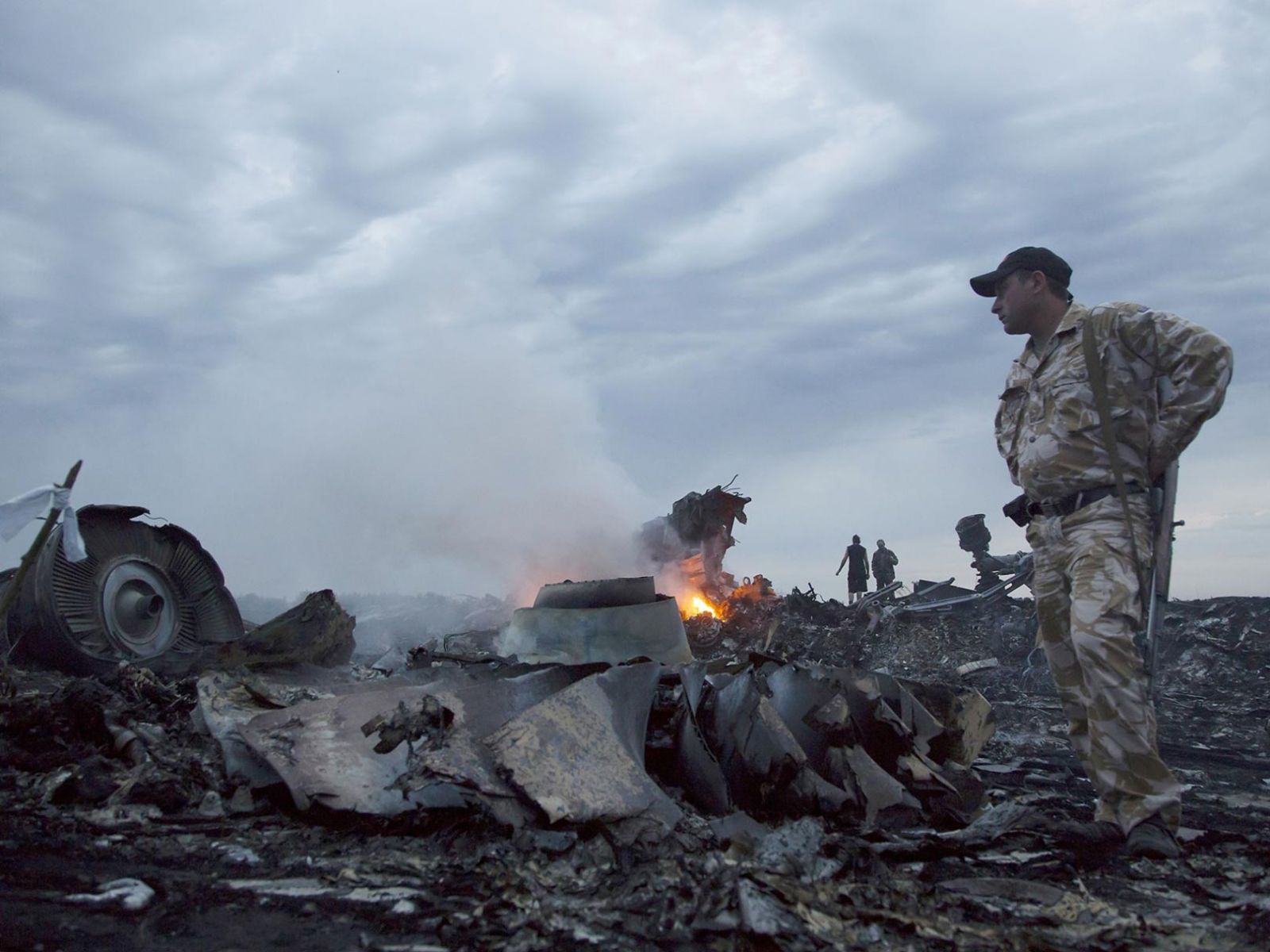Dutch and Australian forces were being readied Saturday for possible deployment to secure the rebel-held crash site of Malaysian flight MH17 in east Ukraine where many victims’ remains still lie nine days after the disaster claimed 298 lives.
A truce has been called in the immediate area surrounding the site by both Kiev and pro-Russian separatists, but fierce combat was raging just 60 kilometres (35 miles) away, with loud explosions heard at regular intervals in a suburb of rebel stronghold Donetsk.
Nine people were reported killed and 29 wounded in the last 24 hours in another insurgent holdout, Lugansk, while Ukraine’s military said it had lost four soldiers.
The European Union punished Russia — which it accuses of abetting the insurgency by arming the rebels who allegedly shot down MH17 — by slapping sanctions on its intelligence chiefs.
Moscow angrily blasted the move as “irresponsible” and warned it put at risk cooperation on security issues.
The violence in east Ukraine is raising questions over the viability of the Dutch-led international mission to the site where the airliner went down, particularly since rebels have signalled that they are only open to allowing a small group in.
But Australian Prime Minister Tony Abbott, whose country lost 28 citizens in the crash, stressed that it is a “humanitarian mission”.
“Plainly there are unrecovered body remains in the area. And it’s the presence of unrecovered remains that makes it more important than ever that an international team be dispatched to the site,” he said.
“Others can get involved if they wish in the politics of eastern Europe, our sole concern is to claim our dead and to bring them home.”
– Passenger belongings reappearing –
Dutch authorities leading a probe into the downing of the Malaysia Airlines flight on July 17 said a total of 227 bodies have been flown to the Netherlands.
But many more victims’ remains lie under the sweltering heat on the vast crash site alongside the burnt-out wreckage of the plane, and AFP reporters at the scene say recovery efforts have ground to a halt.
In a sign that the site is still not secured, OSCE monitors who have been at the site daily say they had also noticed personal objects of passengers including credit cards and passports that were not there before suddenly reappearing.
It remains unclear if the international security forces will gain access, as OSCE monitors said rebels controlling the area were only ready to accept between 25 to 35 members of foreign delegations.
Ukraine’s parliament, which needs to formally approve any international deployment, is only due to broach the issue at a special session Thursday.
The Netherlands, which lost 193 of its citizens, said troops had been consigned to barracks and had leave cancelled ahead of the planned mission.
Australia is sending 190 police, along with a small number of its defence forces to the Netherlands in view of the mission.
– ‘Second front’ –
As the army pressed on with its offensive to wrest back control of the vital industrial east, politicians in Kiev were battling to limit the fallout from Prime Minister Arseniy Yatsenyuk’s abrupt resignation on Thursday.
Lawmakers are to meet in a special session next week to discuss the prime minister’s future. President Petro Poroshenko has insisted on Yatsenyuk’s cooperation until new elections are held.
The premier quit in fury after several parties walked out of his ruling coalition in what appeared to be the beginning of a rancorous campaign ahead of parliamentary elections this fall.
The Fatherland faction of ex-prime minister Yulia Tymoshenko condemned the coalition’s collapse, saying it “opens up a second front” as the country battles to quell the eastern insurgency.
In a sign the upheaval in the cash-strapped country is ringing alarm bells beyond Ukraine, IMF chief Christine Lagarde rang Poroshenko to remind him of reforms Kiev had pledged to undertake in exchange for its $17-billion two-year financial lifeline.
The Fund had previously forecasted that Ukraine’s economy would contract by 6.5 percent this year.
The other chief protagonist in the Ukraine conflict — Russia — is also widely expected to sink into recession.
Russia hiked its benchmark rate on Friday in what seemed to be an attempt to shield the economy from tightening Western sanctions.
The 28-member EU is prepared from next week to impose sector-wide sanctions including embargoes on arms sales and access to financial markets, aimed at further hurting Russia.
(via Yahoo News)







